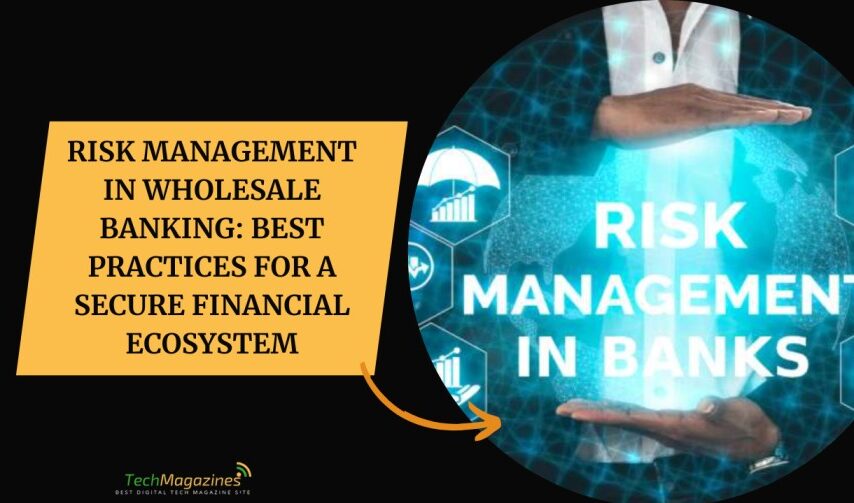Why do financial institutions need specialized services to handle risks, transactions, and monetary operations effectively? Intelligent financial decision-making ensures profitability, stability, and long-term success in today’s competitive and ever-evolving global economy. Trusted global transaction banking platforms provide secure solutions that optimize cash flow, reduce risks, and improve efficiency. Implementing structured budgetary strategies strengthens resilience, enhances growth, and ensures smooth business operations across different industries.
Wholesale Banking offers tailored financial services for corporations, institutions, and high-value clients managing large transactions. Managing large-scale projects demands strategic planning, threat assessment, and efficient capital allocation for sustainable business success. Here, we highlight essential vulnerability management practices that improve security within the corporate banking sector. Let’s learn strategies that enhance stability, ensure compliance, and optimize monetary operations for long-term growth.
Strengthening Governance and Risk Culture
A strong governance framework ensures clear accountability, structured policies, and well-defined threat management strategies. Leadership must prioritize a culture of risk awareness, ensuring employees follow ethical and operational guidelines. Corporate banking technology providers offer advanced tools that help banks monitor compliance and governance structures. A risk-aware workforce enhances security, reduces fraud, and ensures seamless monetary operations for institutions and their clients. Here are the significant factors associated with risk mitigation in corporate banking:
- Regulatory Compliance Management – Following evolving economic regulations helps banks avoid penalties and operational vulnerabilities.
- Robust Fraud Detection Systems – Implementing AI-driven security tools helps detect fraudulent activities and prevent financial crimes.
- Advanced Cybersecurity Measures – Protecting transactional data from cyber threats strengthens institutional security and client trust.
- Efficient Credit Threat Management – Assessing borrowers’ financial health reduces the chances of defaults and economic losses.
- Liquidity and Capital Management – Maintaining adequate liquidity ensures economic institutions meet obligations during economic downturns.
Implementing Comprehensive Risk Assessment Frameworks
Institutional banks must use structured frameworks and analysis to assess market, credit, liquidity, and operational risks. Digital transaction banking solutions providers equip banks with predictive analytics, enabling real-time vulnerability identification and mitigation. Regular stress testing and scenario analysis improve resilience, helping financial institutions prepare for potential economic downturns. A well-integrated threat assessment strategy optimizes monetary performance while complying with evolving industry regulations.
Enhancing Data Management and Reporting
Accurate data collection, storage, and analysis are vital for making informed threat management decisions. Transaction banking solutions companies provide banks with automated data management systems that ensure transparency and regulatory adherence. Reliable financial reporting helps institutions track risk exposure, assess market trends, and optimize decision-making processes. Data-driven vulnerability management fosters trust, enhances efficiency, and supports sustainable business growth for wholesale banks.
Leveraging Technology and Innovation
Advanced financial technologies enhance risk management by automating processes, reducing errors, and detecting fraud. Banking technology solutions providers enable banks to implement AI-driven analytics and blockchain security for safe transactions. Automation minimizes operational risks, allowing professionals to focus on strategic decision-making and innovation. Technology-driven solutions help wholesale banks stay competitive, agile, and secure in an ever-evolving market.
Strengthening Third-Party Threat Management
Wholesale banks collaborate with third-party vendors, requiring stringent threat management to maintain operational security. Corporate banking technology providers offer comprehensive vendor assessment tools that identify potential threats and ensure compliance. Regular audits, contract monitoring, and due diligence minimize the risks of outsourcing critical economic services. Effective third-party risk management protects institutions from reputational damage, economic loss, and regulatory penalties.
Ensuring Regulatory Compliance and Adaptability
Compliance with monetary regulations is essential for avoiding penalties and maintaining institutional credibility. Digital transaction banking solutions providers support banks by integrating automated compliance systems that streamline regulatory reporting. Continuous monitoring of global budgetary policies ensures institutions adapt to evolving legal frameworks and industry standards. A proactive compliance strategy enhances resilience, fosters client trust, and secures long-term business success.
Securing financial stability requires strategic partnerships with trusted providers offering innovative banking solutions for businesses. Wholesale Banking empowers companies with tailored monetary services, risk management tools, and advanced transaction capabilities. Partnering with reliable banking solution providers enhances efficiency, strengthens security, and optimizes economic performance. Strengthen your financial foundation by collaborating with industry-leading providers and unlocking new growth opportunities today.








